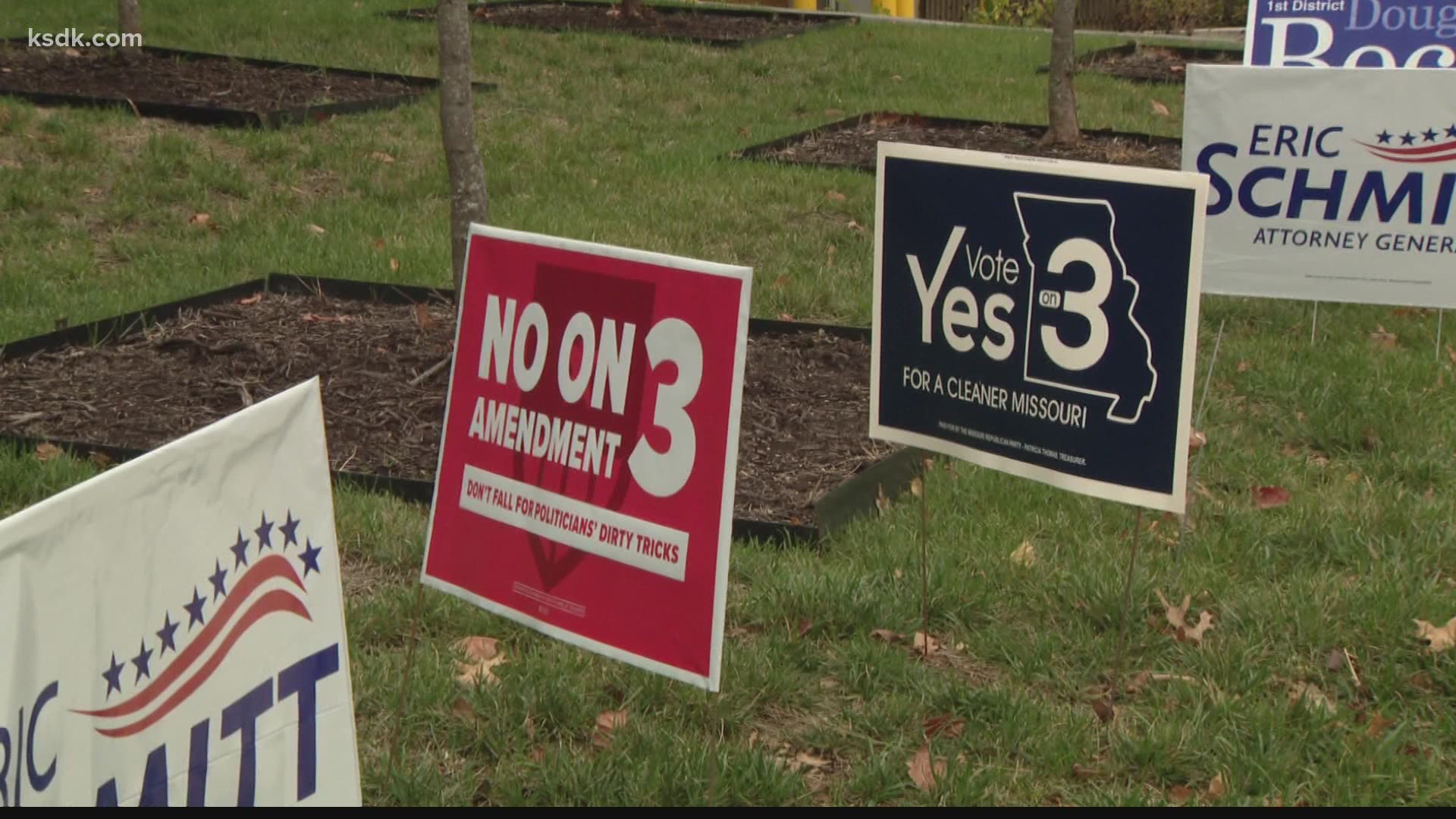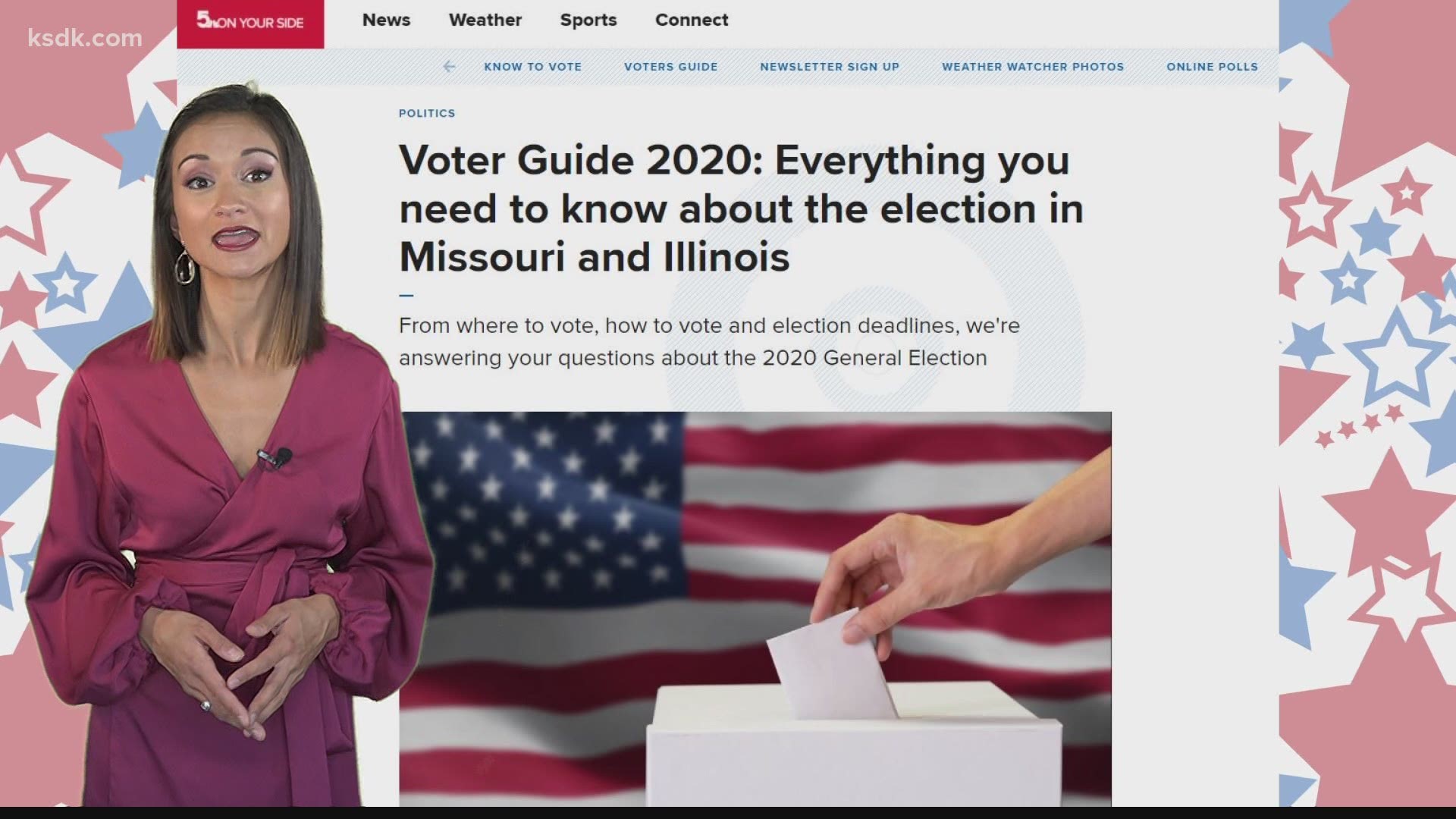JEFFERSON CITY, Mo. — Missouri will vote on Amendment 3 on the Nov. 3 ballot.
The amendment is a GOP redistricting measure that would repeal Clean Missouri, the new system for drawing state legislative maps that Missouri voters passed by 62% in 2018. The Amendment would also change who is counted when drawing those maps.
Ballot language:
"Shall the Missouri Constitution be amended to: Ban gifts from paid lobbyists to legislators and their employees; Reduce legislative campaign contribution limits; Change the redistricting process voters approved in 2018 by: (i) transferring responsibility for drawing state legislative districts from the Nonpartisan State Demographer to Governor-appointed bipartisan commissions; (ii) modifying and reordering the redistricting criteria."
What does it mean?
Two state legislative maps are redrawn every census – one for the House and one for the Senate. Clean Missouri created a nonpartisan state demographer position that will draft those maps after the 2020 Census; Amendment 3 would undo that new redistricting system and replace it with bipartisan commissions appointed by the governor.
The amendment has earned the nickname "Dirty Missouri" by opponents who argue that the ballot language is written to be deliberately misleading. The wording on sample ballots gives top billing to two minor changes to lobbying restrictions: it will ban lobbyist gifts — which were already capped at $5 — and reduce legislative campaign contribution limits by $100, a decrease from $2,500 to $2,400.
"Where they are trying to tout ethics reforms, it's very minimal changes," said 5 On Your Side Political Analyst Anita Manion. "The argument from detractors is that it's sort of the dressing for the gerrymandering package, and I would say that’s true. The underline here is that it would repeal what Missourians passed in 2018, to have a nonpartisan demographer draw state legislative maps."
Additionally, the original ballot summary did not mention that the amendment would be a repeal of Clean Missouri. It was taken to an appeals court over the vague wording, where Cole County Judge Patricia Joyce described it as "misleading, unfair and insufficient."
The summary was revised to read that it would "change the redistricting process voters approved in 2018."
Manion noted that the proposed bipartisan commission would be similar to what Missouri had prior to the nonpartisan state demographer. Since those commissions are formed of an equal number of Democrats and Republicans, they often deadlock and can't come to a compromise.
The redistricting responsibility is then turned over to a panel of judges appointed by the Missouri Supreme Court. This is a common occurrence; since 1991, five out of six of Missouri's state legislative maps have been drawn by a judicial commission, Manion said.
Also a controversial and unique aspect of this amendment, said Manion, is the changes in redistricting criteria.
All states currently draw their legislative maps using population data from the Census. But under the amendment's new criteria, Missouri would not count people under 18, immigrants or those on probation and parole.
“They wouldn’t count the number of people in a district, only the voting-eligible population would count. And we would be the first state to do that,” Manion said.
Proponents argue that these new criteria would be consistent with the principle of "one person, one vote."
Opponents argue it would be unrepresentative of the true population of communities, favoring white voters while marginalizing communities of color and communities where there are a lot of families with children. For example, a child who is 17 at the time of the 2020 Census wouldn't be counted in the redistricting criteria until 2030.


